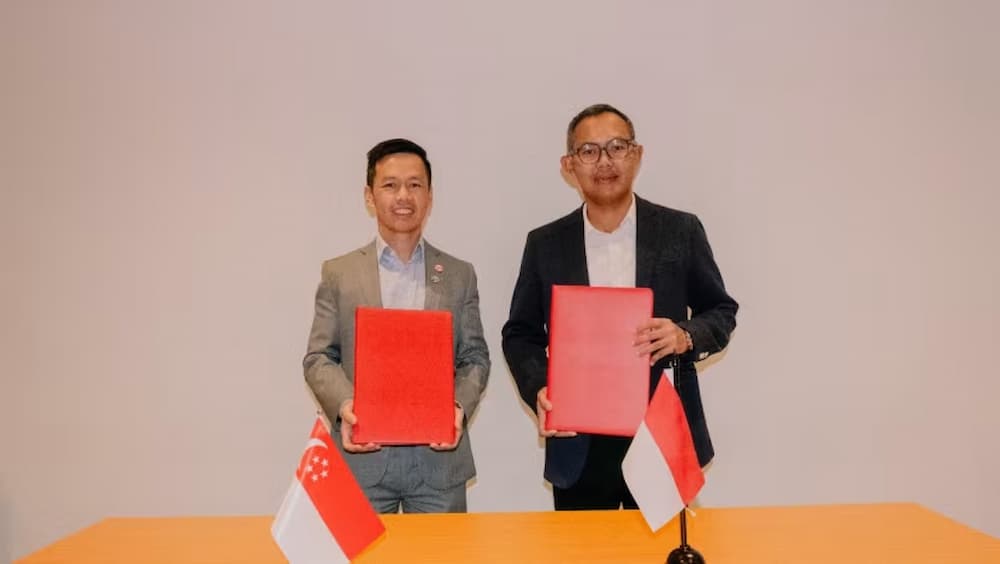Singapore has become the first country to sign a letter of intent (LOI) with Indonesia on cross-border collaboration on carbon capture and storage (CCS) following a new Indonesian law to allow it.
Indonesia issued a presidential regulation last month allowing CCS operators to allocate 30% of their storage capacity for imported carbon dioxide.
With the goal of net zero emissions by 2050, Singapore is looking at exploring low-carbon technologies such as hydrogen and CCS, as part of a suite of mitigation measures.
According to a joint statement on Feb. 15, Singapore and Indonesia will form a working group to seek a legally binding bilateral agreement on the cross-border transport and storage of CO2 between the neighboring countries.

(Photo: Singapore's Ministry of Trade and Industry)
Keith Tan, Singapore's Ministry of Trade and Industry deputy secretary, said in the statement, "Cross-border carbon capture and storage is an emerging solution in Asia, and supports Singapore's transition towards a low-carbon future."
"With the LOI, Singapore and Indonesia can become the pathfinders to catalyze deployment of cross-border CCS projects in Southeast Asia," Tan said.
The outline deal marked “a significant milestone in our efforts towards sustainable development and environmental stewardship,” said Jodi Mahardi, Indonesia’s deputy coordinating minister which overseeing energy.
CCS is the process of capturing, transporting, and storing the CO2 that is produced as a byproduct from activities like power generation.
The CO2 that is captured will therefore not be released into the atmosphere, providing a way to decarbonize from hard-to-abate sectors such as energy and chemicals.
According to the International Energy Agency, global carbon capture utilization and storage facilities will have to increase capacity to around 1 gigaton per annum (gtpa) by 2030 and 6 gtpa by 2050 to reach net zero by 2050. In 2022, the worldwide estimated amount of captured and stored carbon dioxide was 40 million tons.
Critics point out that CCS is an expensive and unproven technology, but Indonesia is keen to become a hub for CO2 storage in Southeast Asia. The government says the country has over 400 gigatons of storage capacity in the depleted oil and gas reservoirs and saline aquifers.
As part of its Sustainable Jurong Island plans announced in Nov. 2021, Singapore targets to achieve 2 million tons per annum (mtpa) of carbon capture by 2030 and 6 mtpa by 2050.





